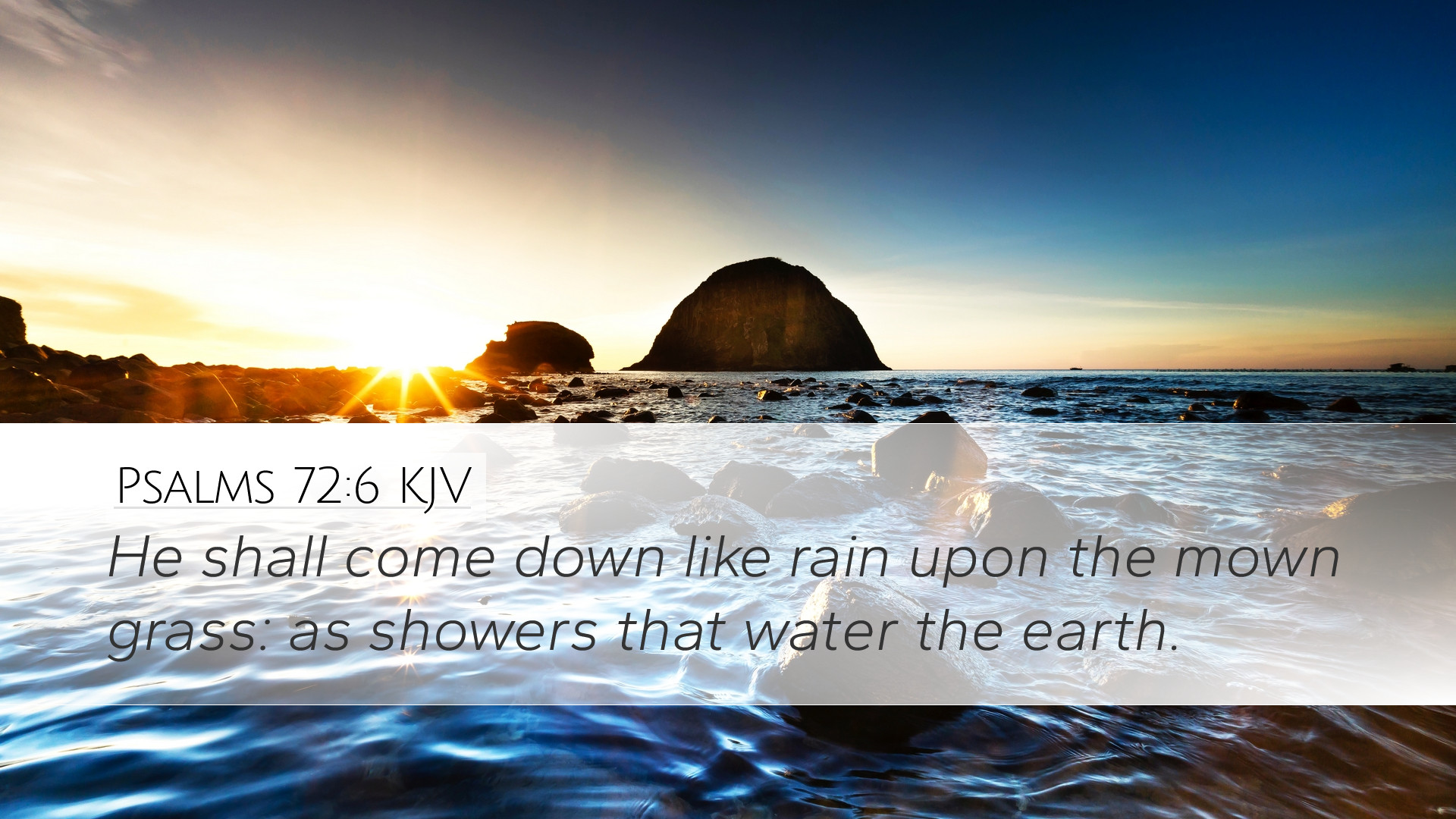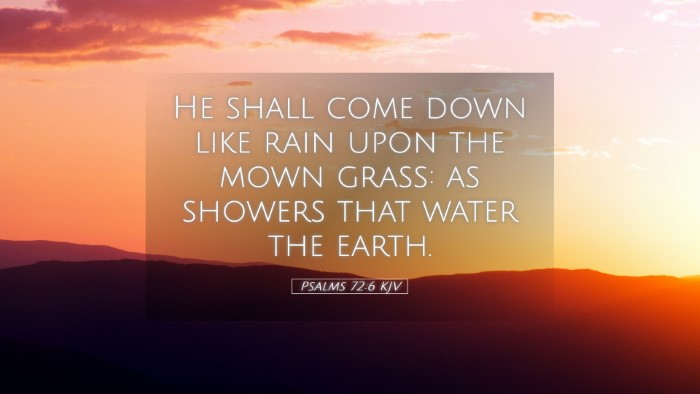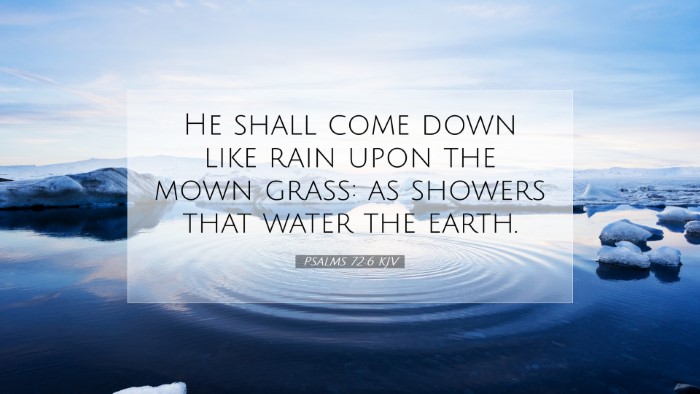Psalms 72:6 Commentary
Verse: "He shall come down like rain upon the mown grass: as showers that water the earth." (Psalms 72:6)
Introduction
The verse Psalms 72:6 is a rich scripture that paints a beautiful picture of the blessings brought by a godly ruler, often understood within the context of Messianic prophecy. It suggests an abundance of grace and renewal, illustrating how leadership under God's guidance brings life and sustenance, much like rain brings water to dry grass. This commentary will explore various interpretations, historical context, and theological implications derived from the text, drawing from respected public domain commentaries.
Context of Psalms 72
This psalm is attributed to Solomon, and its content reflects a prayer for the king's reign characterized by justice and righteousness. The overarching theme celebrates the ideal ruler who fosters peace and provides for the needs of the people. The imagery of rain in this verse serves as a metaphor for the beneficence of such a reign.
- Messianic Interpretation: Many expositors, including Matthew Henry, see this psalm as foreshadowing the coming of Christ, the ultimate righteous king who fulfills this promise of spiritual sustenance.
- Historical Context: Understanding that this psalm likely reflects Solomon's reign, it presents a model for leadership—promoting justice and prosperity, showing that righteous governance is of paramount importance.
Analysis of "He shall come down like rain"
Matthew Henry notes that this phrase signifies the king’s arrival as a source of nourishment and spiritual refreshing. Rain is a symbol of blessing, indicating that the rule of the king will bring life and revival reminiscent of God’s grace over creation.
Adam Clarke elaborates on this imagery, stating that just as rain is necessary for the growth and health of the earth, a ruler’s just actions ensure the flourishing of his people. This connection emphasizes the ruler's role in providing for the basic needs of society.
The Significance of "upon the mown grass"
In this phrase, there is an inherent message regarding renewal. The grass, once cut, appears lifeless but needs rain to revive it. This imagery speaks to the human condition—there are times in life when we feel diminished or cut down by circumstances, yet the presence of righteous leadership can restore hope and vitality.
- Albert Barnes points out that the "mown grass" symbolizes the people, who, without divine intervention, remain dry and lifeless.
- The imagery is also indicative of how God restores His people through leaders who act on His behalf.
Role of Showers
The reference to "showers that water the earth" highlights the abundant and continual nature of the blessings brought forth by just leadership. Matthew Henry further expounds that the king’s influence would be like showers—graceful, steady, and producing fruitfulness in the lives of the people.
This brings to light a potential dualistic interpretation wherein the “showers” might also symbolize the outpouring of God’s Spirit that accompanies righteous leaders, fostering spiritual growth among His people.
Theological Implications
In examining this verse from a theological perspective, we are called to consider the nature of God's reign through Christ. Adam Clarke presents the view that just as rain is essential for physical sustenance, so is Christ essential for spiritual nourishment and growth. This verse powerfully reflects the essential truth that Christ fulfills all the roles of the ideal king, offering salvation and life abundantly.
This also encourages modern-day leaders to mirror these qualities, emphasizing justice, righteousness, and care for the marginalized and oppressed—a guiding principle for clergy and civic leaders alike.
Application for Today
The lessons drawn from Psalms 72:6 are timeless and encourage individuals in positions of leadership today to recognize their calling to be like rain to those they lead. It encourages:
- Leadership Through Service: Rulers and leaders should seek to serve their communities, ensuring their actions promote well-being and spiritual health.
- Spiritual Nourishment: Just as the rain brings life, leaders are called to guide their communities toward spiritual abundance through teachings that foster faith and righteousness.
- Modeling God's Justice: Emulating the justice mentioned in this psalm is essential for any leader who desires to reflect the character of God in their governance.
Conclusion
Psalms 72:6 presents a powerful allegory of the ideal leadership exemplified by Christ and serves as a call to action for leaders today. By drawing on the insights of noted commentators, it becomes clear that the role of leadership is both a divine responsibility and a blessing for the community. As pastors, theologians, and students of the Word, the challenge remains to embody the kind of leadership that sustains and nourishes, much like the rain upon the mown grass.


